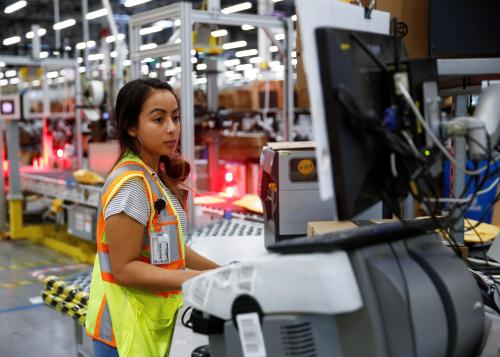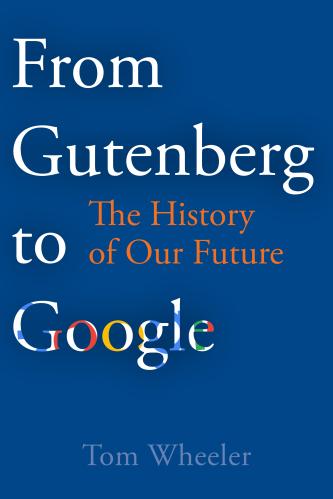Technology-driven changes—like those we are presently experiencing—produce demands for security and stability that pose a threat to liberal democracy and capitalism. Across the world, autocrats are on the rise because they claim they can deliver answers; symbols such as Brexit or the Wall pose as solutions; and old economic “isms” are reborn as “new” solutions. This is not a unique experience; our struggles in the information age echo similar struggles in the industrial age.
When change attacks at gigabit speed, the quest for solutions also accelerates. It took the telephone a leisurely 125 years to connect one billion people. The Android mobile phone, in contrast, reached the same milestone in less than six years. The buffer of time that traditionally helped individuals and economic activity acclimate to new technology is compressed.
Liberal democracies, however, are hard to condense. A representative democracy of free and fair elections and an equally-applied rule of law is, by design, a slow process. In a time of rapid technological change, innovative capitalists step up to make the rules regarding how their activities impact the rest of us. Previously, such self-interested rule-making has been confronted eventually by a collective public interest, democratically expressed, to create new rules that protect the common good.
For democracy to produce such a resolution, it requires two external accelerants. The first is the belief that collective action can repair economic disparities and restore hope for a better future. However, when technology upends these patterns of life, creates a 100-year peak in wealth disparity, and undermines the belief that tomorrow will be better, that rationale to choose democracy is challenged.
The second criteria necessary for democracy to work is for us to overcome our inherent tribal instincts and band together. Unfortunately, the business plan of the internet economy undermines this priority by hastening a retreat to tribes. Internet companies—both networks and those that provide services over them—have discovered a digital alchemy that takes your private information and turns it into their corporate asset. Using that information, the companies slice and dice us into tribal groupings to sell to advertisers—or foreign interests seeking to sow discord by playing one tribe against another.
The last time America was confronted by technology-driven change on such a massive scale was the industrial revolution of the 19th century. Like today, new technologies bestowed the riches of Midas on a limited few who invented or invested in the new capabilities. Like today, it was feared technology threatened jobs, and immigration became a rallying cry; “Irish need not apply” signs joined efforts to ban Asians from American shores.
By taking action to meet the problems of the industrial era, however, the nation’s leaders turned technology-driven challenges into American success stories. At the heart of such success was the creation of new public interest rules reflecting new business and technology realities. The resulting policies seem second nature to us today: antitrust enforcement, consumer protection, and worker protection. These new rules did not restructure the economy nor inhibit innovation, but they did put guardrails in place to temper the instinct to excess that is inherent in unsupervised capitalism. The result was unprecedented economic growth for all.
Today, we need a similar reconsideration and restructuring of the rules of economic behavior. Just as the rules of agrarian mercantilism were inadequate for industrial capitalism, the rules of the industrial economy are proving inadequate for internet capitalism. Thus far, the digital companies have been making the rules. “Digital is different” we are told; there is some kind of digital magic mere mortals should not tamper with lest they break the wizardry.
The development of the industrial era rules was not a calm and self-obvious process. Since capitalism had produced the problems of industrialization, groups mobilized in behalf of new structures ranging from communism, to socialism, to fascism. Too often, we recall that earlier era with foggy images of halcyon days that are far from the historical reality. Some politicians tell us we can painlessly return to those seemingly easier days. However, the record of history is clear: what made America great was confronting the challenges, not fleeing them.
Which brings us back to the future of liberal democracy and capitalism. When existing institutions fall short of addressing the people’s anxieties, the response is to search for new solutions. While President Trump attempts to label new solutions as “socialism,” the search for such solutions represents precisely the kind of discontent that put him in office. Unfortunately, the Trump Administration’s answer to concerns about the digital economy has been to walk away from oversight in the name of “deregulation.” It is just the opposite of the new guardrails that are needed for our new digital realities.
The Brookings Institution is committed to quality, independence, and impact.
We are supported by a diverse array of funders. In line with our values and policies, each Brookings publication represents the sole views of its author(s).








Commentary
Internet capitalism pits fast technology against slow democracy
May 6, 2019